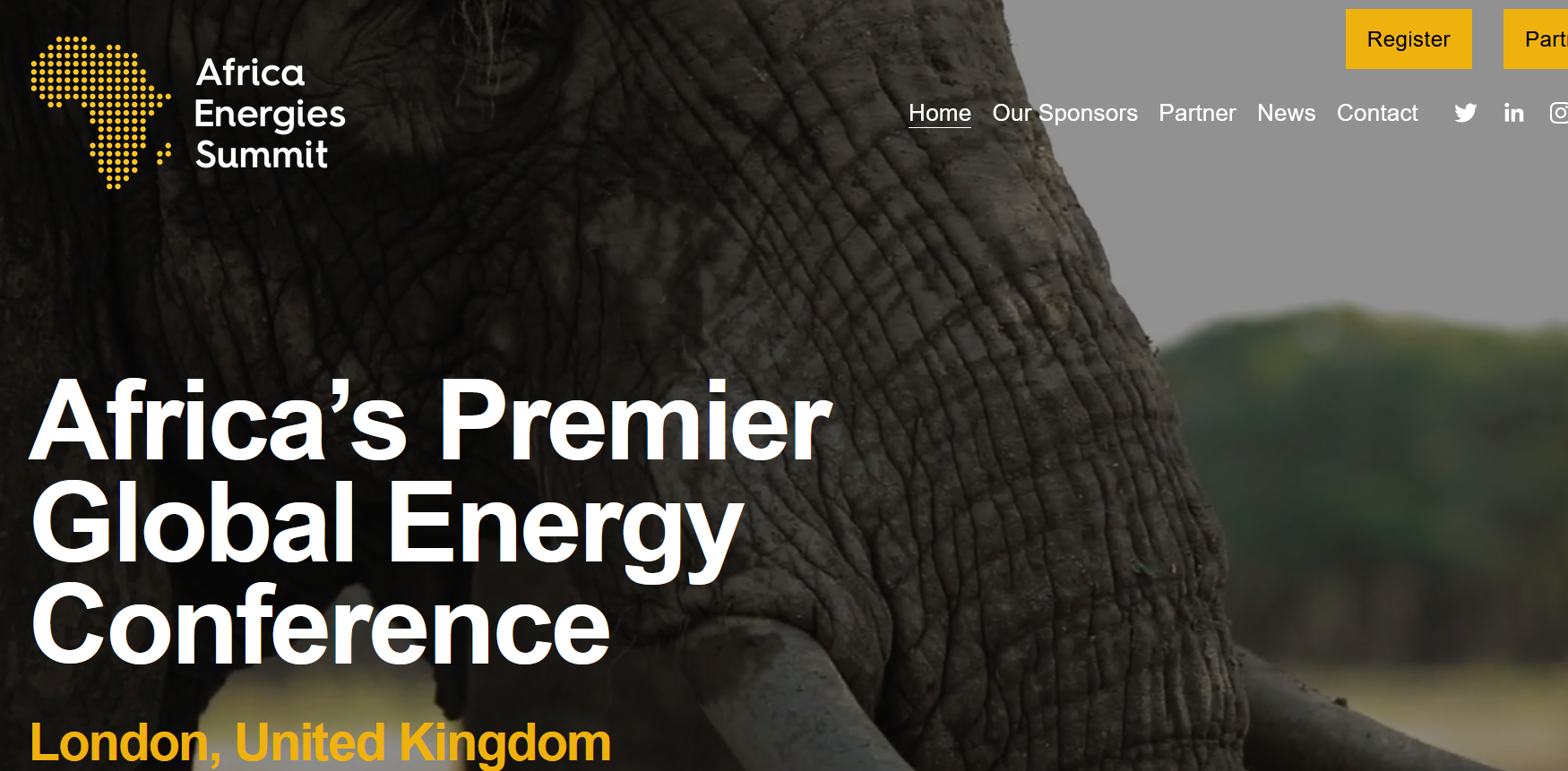
Activists warn “don’t plunder Africa” after human rights activist is “locked out” of London energy conference
The glossy website for the African Oil Summit in London last week called the event “Africa’s premier global energy conference”. Partners included some of the biggest international oil companies such as BP, Shell, Eni, E.on and Total.

C: Screengrab of African Energies Summit website
The glossy website for the African Oil Summit in London last week called the event “Africa’s premier global energy conference”.
Partners included some of the biggest international oil companies such as BP, Shell, Eni, E.on and Total.
Although billed as an oil event, it was predominantly an oil and gas event. Big Oil was joined by high-level dignitaries from African countries looking to expand their oil and gas production, such as Somalia, Angola, The Gambia, Malawi, Liberia, Egypt and Ghana.
https://twitter.com/ConnectFrontier/status/1642851480188203009
The strapline for the conference was simple: “Join us to promote Africa’s energy to the world”.
But immediately, alarm bells should start ringing. First, the fact that the conference was happening in London and not on the continent immediately means the conference excluded ordinary Africans. The fact that ticket prices were over £2,000 compounds that fact.
Secondly, the latest climate science implores that we cannot carry on drilling for oil and gas if we want a liveable future. Conferences such as this just carry on implementing the fossil fuel industry’s playbook of ignoring the science, and daily evidence of our climate emergency.
Thirdly, the conference went beyond elitism. In a move that stinks of racism, a leading human rights campaigner from Africa, Salome Nduta, was deliberately excluded from the meeting.
Salome, who is from Kenya and the Coordinator for Oil Watch Africa, says she was “removed from the list of delegates” to the conference because the event was “sold out”. Despite barring Nduta on the Friday before the meeting, the organisers continued to sell tickets until the following Tuesday, some four days later.
“I feel so angry,” Nduta, who had paid over £4,000 for a Delegates pass ticket, told DeSmog in an interview. “They didn’t want me to be there.”
Desmog noted: “Campaigners said Nduta’s concerns over the Africa Energies Summit reflected long-running struggles by African advocacy groups to win a fair hearing at high-level industry or government meetings.”
Nduta told Desmog, “As a woman, we struggle to be given a voice in these spaces, and as an African woman, the hurdles I’ve faced back home to work in this area have been enormous,” Nduta said.
“To finally have the opportunity to participate in this space and then to face this whole other level of discrimination – I can’t believe it,” she added.
Other African activists were outraged by what happened. “Many times, Africans end up being locked out of events, even after spending money on registration, accommodation and air tickets,” Dean Bhekumuzi Bhebhe from Don’t Gas Africa told Desmog. “Why are we discriminated against in conversations on an issue that concerns us the most?
Beyond the treatment of Nduta, there is a broader “paradox” of an entirely different continent hosting an African energy summit, which will continue the legacy of exploitation, exclusion and colonisation across Africa.
Nimmo Bassey, a long-term campaigner against the oil industry in Africa and the Director of the Benin-based Health of Mother Earth Foundation, said, “Africa is treated as just a geographical location for plunder and exploitation of its people and resources. Historically, This has been done with the connivance of elites lurking in the shadows of ‘development’”.
Bassey continued: “A summit of this magnitude should consider the true cost of the extractive industries’ activities on communities across the continent, instead of whitewashing its role in the extensive environmental cataclysm.”
The London Energies Summit was also targeted by The People’s Health Movement, which issued a statement. “People in London are taking action at the Africa Energies Summit today to stand in solidarity with communities resisting the violence of fossil fuel companies across Africa. Shell, TotalEnergies and other destructive corporations gathered in London must pay for their harm to communities across Africa and their contributions to the climate crisis.”
Just days before the energy summit, at an alternative conference, the People’s Health Movement convened a Tribunal where communities affected by oil operations across Africa came together to share their stories. They recounted how Shell and Total had destroyed livelihoods and health in South Africa, Mozambique, Nigeria and Uganda.
One of the speakers at the Tribunal was Anabela Lemos from Justiça Ambiental/Friends of the Earth Mozambique, who warned that the African Energies Summit “is just another way for northern fossil fuel companies, financiers and governments to plan further exploitation of Africa. Their track record of displacing entire communities and irreversibly damaging the environment, bringing no benefits, shows they have no interest in the wellbeing of African economies and peoples.”
Lemos added, “This Summit must not be normalised; it is just a war room for the wealthy and powerful to further bleed and devastate Africa.”
And today, the People’s Health Movement took their concerns to Shell’s AGM to demand “reparative justice”.
Last week, we heard from communities across Africa whose health has been devastated by Shell. On Tuesday 23rd, we take the verdict of the People’s Health Tribunal to their AGM to demand reparative justice.
Join us: https://t.co/hmIPJn3yaA pic.twitter.com/O8avG89U41
— People's Health Movement uk (@phm_uk) May 22, 2023
